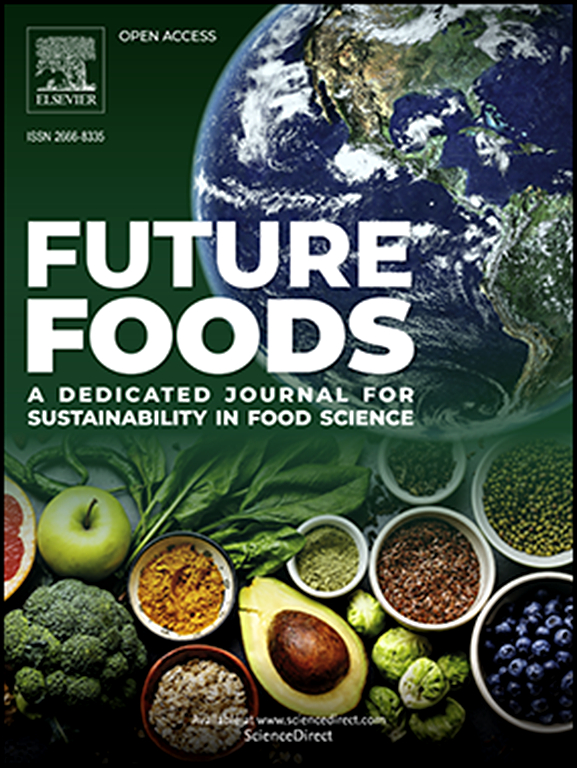Fermented plant-based cream cheese analogues formulated using legume flours and avocado pulp
IF 7.2
Q1 FOOD SCIENCE & TECHNOLOGY
引用次数: 0
Abstract
In response to the growing need for sustainable and healthy food alternatives, this study developed plant-based cream cheese analogues (PBCCAs) using chickpea and red lentil flours. Initially, various flour blends were evaluated for textural properties, with chickpea and red lentil selected for their superior adhesiveness and spreadability, akin to commercial vegan cream cheese. These blends were first fermented using lactic acid bacteria (LAB) as single-strain starters. The most effective strains were then combined to create multiple-strain starters, aimed at enhancing both techno-functional and nutritional properties. Post-fermentation with these multi-strain starters showed significant improvements: protein content increased to 35 % in chickpea PBCCAs and 23 % in red lentil PBCCAs, while fat content was reduced to 4.5 and 2.5 %, respectively. Additionally, starch content decreased to 64.69 mg/g in chickpea and 353.90 mg/g in red lentil PBCCAs. The fermentation process also boosted the storage modulus to 1160.09 and 1304.43 Pa, respectively, and significantly altered amino acid profiles, notably increasing levels of certain amino acids such as glutamate and glycine. Reductions in antinutritional factors like raffinose further enhanced the nutritional appeal of the PBCCAs. These results underscore the potential of LAB-fermented legume flours and avocado to produce nutritious and appealing plant-based cheese alternatives.

求助全文
约1分钟内获得全文
求助全文
来源期刊

Future Foods
Agricultural and Biological Sciences-Food Science
CiteScore
8.60
自引率
0.00%
发文量
97
审稿时长
15 weeks
期刊介绍:
Future Foods is a specialized journal that is dedicated to tackling the challenges posed by climate change and the need for sustainability in the realm of food production. The journal recognizes the imperative to transform current food manufacturing and consumption practices to meet the dietary needs of a burgeoning global population while simultaneously curbing environmental degradation.
The mission of Future Foods is to disseminate research that aligns with the goal of fostering the development of innovative technologies and alternative food sources to establish more sustainable food systems. The journal is committed to publishing high-quality, peer-reviewed articles that contribute to the advancement of sustainable food practices.
Abstracting and indexing:
Scopus
Directory of Open Access Journals (DOAJ)
Emerging Sources Citation Index (ESCI)
SCImago Journal Rank (SJR)
SNIP
 求助内容:
求助内容: 应助结果提醒方式:
应助结果提醒方式:


